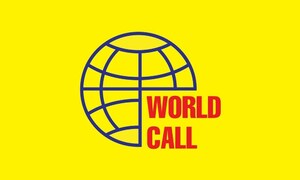Discos, KE’s base tariff raise bid: Nepra puts its stamp on govt’s proposed uniform SoTs
ISLAMABAD: The National Electric Power Regulatory Authority (Nepra) has stamped federal government’s proposed uniform Schedule of Tariffs (SoTs) for Discos and K-Electric (KE) to increase uniform increase in base tariff of up to Rs7.12 per unit fixing it to Rs35.50 per unit for 2024-25 from 29.78 per unit of FY 2023-24, just a day after holding a public hearing aimed at meeting deadlines of the International Monetary Fund (IMF).
The determined increase in tariff is based on the federal government’s motion and subsequent addendum to free the tariff of protected and non-protected domestic consumers using 200 units monthly for three months (July, August and September 2024) through an allocation of Rs50 billion from PSDP 2024-25.
The Power Division explained that a total revenue requirement for the FY 2024-25 has increased to Rs3,768 billion, as determined by NEPRA, resulting in an increase of Rs5.72/kWh in the average base tariff for the FY 2024-25.
Collection via PPO: Rs4bn payment issue will be resolved, Aurangzeb tells KE
While explaining reasons for the increase, the MoE highlighted that Power Purchase Price (PPP) for the FY 2024-25, increased by Rs4.86/kWh as compared to FY 2023-24.
The Power Division further submitted that out of the total increase of Rs5.72/kWh, an increase of Rs.3.29/kWh is being passed on to the consumers from July to September 2024, and Rs4.55/kWh thereafter till June 2025. The differential amount would be picked up the federal government in the form of a subsidy.
Regarding subsidy, the Power Division stated that despite the proposed increase in tariff, the federal government would be picking up a tariff differential subsidy of around Rs490 billion, including Rs177 billion for KE and Rs313 billion for XWDISCOs consumers.
On the point of fixed charges, the petitioner stated that 67 per cent of the power sector’s cost is fixed/unavoidable and 33 per cent is variable. On the other hand, the recovery structure has a 98 per cent variable component and only two per cent fixed, therefore, both incurring of cost (fixed in nature) and its recovery mechanism (consumption-based) need to be aligned.
The petitioner, however, requested the authority to reconsider fixed charges for various categories as Rs400-1,250/kW/month, instead of Rs500-2,000/kW/month determined by the authority.
The effective rate of consumers, however, will remain the same as a decrease in fixed charges, would be offset by the corresponding increase in variable charge.
Additionally, the petitioner also requested that fixed charges currently being charged at 50 per cent of sanctioned load or actual MDI, whichever is higher may be reconsidered to be charged at the rate of 25 per cent of the sanctioned load or actual MDI, whichever is higher.
Tanveer Barry, representing KCCI, opposed the motion by submitting that increase of Rs5.72/kWh would effectively be around Rs7/kWh after inclusion of taxes etc. This would hamper the financial viability of the industrial sector, therefore, concrete steps need to be taken to address the challenges of the power sector.
While responding to the comments of Arif Bilwani, regarding a significant increase in the energy charge, the representative of the petitioner explained that new references for the FY 2024-25, have been developed based on a constraints-based despatch, whereby, increased generation has been assumed from RLNG and lesser despatch has been considered from local and imported coal, as compared to references assumed for the FY 2023-24.
Similarly, increased fuel prices along with North-South transmission constraints have also contributed to increased energy charges.
Upon inquiry from Bilwani, regarding issues framed for DISCOs tariff petitions, which were not part of DISCOs request, it was explained that issues like modification in tariff rate design, increase in fixed charges, and tariff to be designed on cost of service basis etc., were framed keeping in view the directives given in the NE plan and to match incurring of cost (fixed in nature) and its recovery mechanism (consumption based).
The authority observed that capacity charges of generation companies, and NTDC/HVDC costs etc., are fixed costs, which are required to be paid periodically, irrespective of electricity consumption by the consumers. These fixed costs, accounts for around 70 per cent of the total revenue requirement of the distribution companies.
However, present consumer end tariff design is volumetric in nature, whereby around 96 per cent of the total system cost is recovered on units consumed basis (Rs/kWh) and remaining four per cent as fixed charge per kilowatt per month (Rs/kW/month). Thus, there is a mismatch between incurring of cost (fixed in nature) and its recovery mechanism (consumption based).
NE Plan also provided that fixed charges shall be progressively incorporated in the tariffs of all consumer segments, which shall account for at least 20 per cent of the fixed cost.
Pursuant thereto, the rate of fixed charges of different consumer categories were enhanced from the existing 440-5001kw/month to Rs500-2,000/kW/month, but despite this increase, fixed cost still accounts for less than 10 per cent of the total fixed cost of the system.
Copyright Business Recorder, 2024























Comments
Comments are closed.